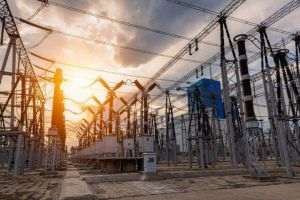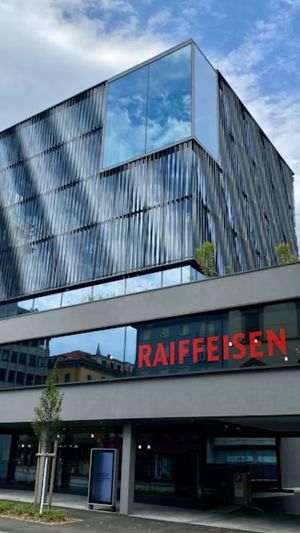The results of the tests concerning the double standard, conducted on some of the foods and presented on Wednesday by agriculture minister Petre Daea has raised a series of questions, angering both the press and the representatives of consumer associations and leading even PM Mihai Tudose to ask for explanations on the issue.
More specifically, the minister of Agriculture has announced, dryly, that nine food products sold in Romania have different characteristics to the one in West and that he is not allowed to tell us the names of the brands, of the producers and of their retailers.
Two of the questions that we have asked ourselves is why the tests were only made on some food products and not on non-food products such as detergents or cosmetics and why we are not allowed to know the names of the non-compliant products.
The response of the minister to that latter question was that he couldn't provide details concerning the names of the distributors and manufacturers where food products that were likely to use a double standard (different in the West over Romania) because there is a risk of lawsuits, which could be expensive.
The answers provided yesterday by the representatives of the National Consumer Protection Authority (ANPC) are also evasive, as the authorities of other countries which are faced with the issue of the double standard have mentioned the names of the products in question and have withdrawn them from the market.
In that context, Costel Stanciu, the president or the Pro-Consumer Association (Asociaţia Pro-Consumatori - APC), has asked for the resignation of Petre Daea yesterday, as he says that the whole situation that has been created around the row of the double standard for foods has been mismanaged by the minister. Mr. Stanciu told us: "We had to ask for this resignation, due to the way that agriculture minister Petre Daea has mismanaged for five months the issue of the double standard concerning foods. The response to this situation has been constantly postponed".
The APC further states: "We ask the Ministry of Agriculture and Rural Development to present to the public opinion the analysis reports for the non-compliant products, by publishing them on the website of the institution and to take the necessary measures for those retailers to comply with the law, by re-labeling the non-compliant products or remove from the market the batches that include the nine products which have been identified as non-compliant".
The president of the APC told us: "Me and my colleagues have reviewed unemotionally reviewed what has happened during this period and we have found that there is a simple solution to this problem, namely the withdrawal of the non-compliant products from the market, based on article 55 of the Consumer Protection Law, which stipulates that if products whose contents does not match the label are found, while not endangering the health of the public, they have to be withdrawn from the market".
On Wednesday, Petre Daea said that even though they are non-compliant, the nine food products do not threaten the health of citizens.
Also Mr. Costel Stanciu told us that in his opinion, the expression "double standard" actually helps the producers who are cheating the public, and saves them from the need to re-label their products and maybe even remove them from the market. He explained: "Until the European Commission defines what «double standard» means, until a common methodology is established, plenty of time will pass, and during that time those producers and retailers will continue to sell their products unimpeded, and we will continue to be cheated".
• The prime-minister is asking for a legislative framework "that would allow us to tell citizens which companies view us as a second rate country"
Prime-minister Mihai Tudose yesterday asked the Minister of Justice to cooperate with the Ministry of Agriculture and with the competent institutions on drafting a domestic law that would allow mentioning the names of the companies that consider Romania a "second rate" country, when it comes to the food products which are liable to use a double standard.
According to Agerpres the PM said: "Maybe we can find a way that, until who knows what European regulation gets drafted, we can draft one of our own. (...) Or at least a legislative framework that would allow us to tell our citizens which companies consider us a second-rate country and we treat them accordingly".
Justice minister Tudorel Toader also explained that the basis of the discussion to find a legal solution starts from the principle of equal treatment that all EU consumers should enjoy.
Tudorel Toader said: "Sure, we will cooperate with the Ministry of Agriculture, with all the ministries that may have connections to this issue, but, on principle, I believe that the debate ins this case concerns the equal treatment that consumers must enjoy, all the EU citizens, regardless of whether they are members of one state or another. That is the basis of discussion, that is the base that we are going to start from, towards identifying the legal solution on one hand and the practical, factual solution, on the other".
The Ministry of Agriculture is saying that it has already sent to the results of the studies to the European Commission (CE).
• ANPC: "The products that were selected come from among those that are consumed daily, and which could affect the health of consumers"
The National Consumer Protection Agency (ANPC) yesterday told us that the inter-institution team consisting of specialists from the Ministry of Agriculture, the ANSVSA and the ANPC have elected for the samples to be taken from food products because those are the products that are the most used by consumers: "Food products that are consumed daily were selected (meat products, milk products, canned fish and chocolate), which can raise issues and affect consumer health. Out of the 29 samples taken, differences in their energy value were found in nine of them. The energy value is calculated through the sum of the nutrients value of the ingredients that a product contains.
That report was sent to the European Commission because it is the Commission that centralizes the data from the countries of the European Union, with the goal of assessing whether the problem of a double standard in the East and in the West exists or a wide ranging one and also to improve the legislative framework".
• ANSVSA: "The costs of the analyses was 7206 lei"
According to the National Sanitary Veterinary And Food Safety Authority (ANSVSA), the laboratory analyses conducted at the Hygiene Institute of the ANSVSA, have assessed parameters such as fat, protein or carbohydrate content, humidity or energy value.
The ANSVSA representatives told us: "The laboratory tests performed at the institute, according to the duties of the Authority, based on the specific equipments, through validated and accredited methods, sought to determine the following parameters: fat and protein content, humidity/dry substance, carbohydrates, nutritional values (energy value), meat/fish content in the can, added substances (additives and allergens) specified on the product label: salt, nitrites, phosphates".
According to the ANSVSA, the cost of the laboratory analyses was 7,206 lei, adding to that the travel expenses of the specialists, which amounted to 32,884 lei.
Slovakian prime-minister Robert Fico, who complained to the European Commission about the quality of food products sold in his country's supermarkets, yesterday requested for actions following the complaints that some companies are selling products at a lower quality in Central and Eastern Europe than in the rest of the continent, AP reports, according to Agerpres.
The problem is found in products such as chocolate and low quality pressed pork meat to detergents with a lower content of active ingredients, Robert Fico explained.
He said: "We cannot tolerate for chocolate in Austria to be of better quality. It has the same price, the same packaging and the quality is not the same in Hungary, Poland, the Czech Republic and Slovakia".
European Commission president Jean-Claude Juncker yesterday said that the food products that are apparently identical should not be sold with inferior ingredients in Eastern Europe, amid controversies on the matter, Reuters reports.
The European Commission is preparing a common method to see whether in certain countries the quality of foods is lower, as per the allegations, Christian Wigand, spokesperson of the European Commission said on Tuesday.




























































